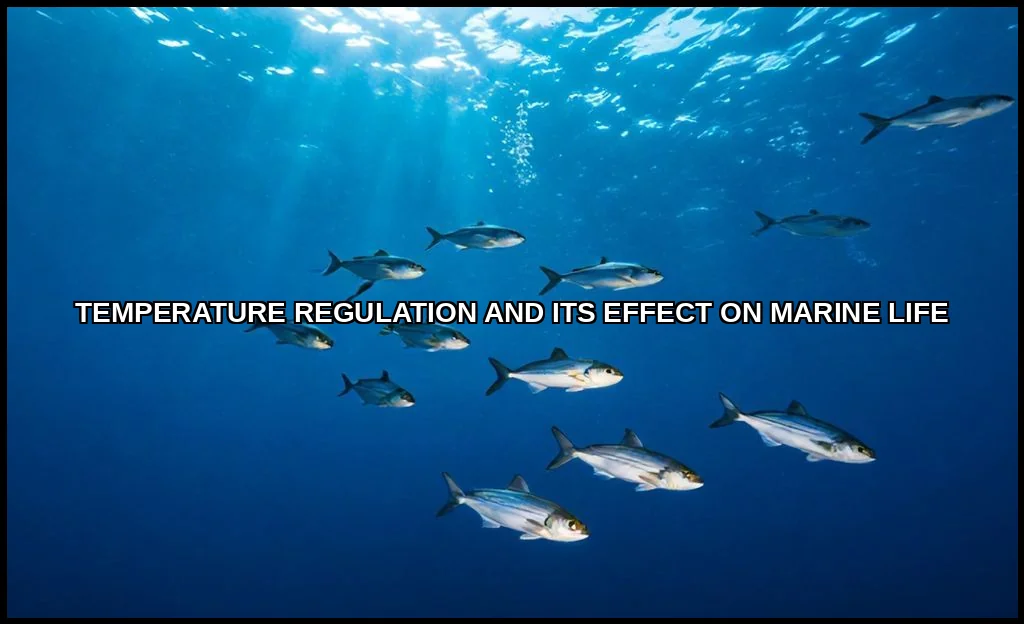The ocean’s temperature is its master conductor. It dictates the rhythm of life, from microscopic plankton to the largest whales. Every species has a specific thermal range where it thrives. Stray outside that range, and the entire symphony can fall into disarray.
We’re now witnessing a rapid, global-scale shift in this fundamental conductor. The steady rise in sea surface temperature (SST) is more than a statistic; it’s a force reshaping marine ecosystems from the poles to the tropics. This isn’t just about warmer water. It’s about survival, migration, and the very chemistry of the sea.

The Science: How Temperature Regulates Marine Life
Most marine organisms are ectothermic. Their internal temperature, and thus their biological functions, are governed by their surroundings. Think of temperature as the dial controlling their metabolic engine. A slight increase can accelerate processes, while a decrease slows them down.
This relationship is direct. For many species, a 10C rise in water temperature can double their metabolic rate. That means they need more food and oxygen just to maintain basic functions. It’s a constant balancing act. Their thermal tolerancethe range they can enduredefines their world.
When ambient conditions push beyond these limits, organisms experience thermal stress. This physiological strain impacts everything from growth and reproduction to immune response. It’s a core concept for understanding the broader impacts of ocean temperature rise.
Metabolic and Physiological Impacts
The effects cascade through an organism’s biology. Increased metabolic rate demands are often not met by available resources, leading to energy deficits. Reproduction can be impaired. Development rates may change, causing mismatches in food availability.
For aquarists managing delicate reef systems, maintaining a stable temperature is paramount. Sudden spikes can be devastating. For this reason, many professionals rely on equipment like the BAOSHISHAN Aquarium Chiller to prevent thermal stress in captive environments, a microcosm of the challenges faced in the open ocean.
These physiological principles explain the broader patterns we see. They are the “why” behind the mass events now dominating headlines.
Observed Impacts: Bleaching, Migration, and Change
The theory is now visible reality. The data shows clear, alarming trends linked directly to rising heat.
Coral Bleaching Events and Marine Heatwaves
Coral bleaching is the most iconic symptom. Corals host symbiotic algae that provide them with color and up to 90% of their energy. Under sustained thermal stress, corals expel these algae, turning bone-white and starving.
What is the link between temperature and coral bleaching? It’s a direct stress response. These events are often triggered or intensified by marine heatwavesprolonged periods of abnormally high sea temperatures. The Great Barrier Reef has suffered multiple mass bleaching events in recent years, a stark indicator of systemic change.
- Increased frequency and severity of coral bleaching events.
- Reduced coral growth and calcification rates.
- Higher susceptibility to disease following thermal exposure.
Species Migration Patterns and Distribution Shifts
Fish and other mobile species aren’t waiting around. They are moving to stay within their preferred thermal habitat. How does rising ocean temperature affect fish migration? It drives it. Species are shifting poleward or to deeper, cooler waters.
This reshuffles entire ecosystems. Predators may lose their prey. New competitors arrive. These species migration patterns lead to phenological shifts, where the timing of life events (like spawning) falls out of sync with food sources.
The concept of habitat suitability is changing in real-time. Areas once teeming with life may become inhospitable, while new regions see an influx of species. The baseline is moving.
Future Projections and Complex Interactions
Current trends are projected to accelerate under most climate scenarios. The Intergovernmental Panel on Climate Change (IPCC) models indicate continued warming, with profound implications.
Ocean acidification often works in tandem with warming. As the ocean absorbs more CO2, its chemistry changes, making it harder for corals, shellfish, and plankton to build their shells and skeletons. Heat stress exacerbates this chemical stress.
Can marine life adapt to warmer waters? Some thermal adaptation is possible through genetic selection or acclimatization. But the pace of current change is unprecedented. Evolutionary processes often work on timescales far slower than the rate of modern ocean temperature rise.
| Impact Driver | Primary Effect | Example Consequence |
|---|---|---|
| Sea Surface Temperature Rise | Thermal habitat compression | Poleward range shifts for commercial fish stocks |
| Marine Heatwaves | Acute thermal stress | Mass mortality events and coral bleaching |
| Ocean Acidification | Reduced calcification | Weakened coral reefs and shellfish populations |
For a comprehensive look at these interconnected issues, the NOAA resource collection serves as an excellent official source of climate impact data.
Conservation and Adaptation Strategies
Addressing this crisis requires action on multiple fronts. Mitigationreducing greenhouse gas emissionsis the ultimate solution to slow the driver. But adaptation strategies are now essential to build resilience.
- Protecting Refugia: Identifying and safeguarding areas that may remain cooler or recover faster, such as deep-water reefs or upwelling zones.
- Assisted Evolution: Exploring selective breeding or conditioning of corals for higher thermal tolerance.
- Reducing Local Stressors: Improving water quality and managing fisheries takes pressure off ecosystems already under thermal duress.
The principles of managing thermal load apply on all scales. Just as you’d carefully consider what temperature is safe for a home system, managing the ocean’s heat budget is a global imperative. Understanding how temperature affects biological processes is the first step toward effective intervention.
A Path Forward
The challenge is immense, but not insurmountable. It demands global cooperation, robust science, and a willingness to innovate. From international climate agreements to local reef restoration projects, every action contributes.
Supporting sustainable fisheries, reducing plastic pollution, and advocating for clean energy policies all help. The ocean’s temperature regulation system is being tested. Our response will determine the resilience of marine life for centuries to come. The time for decisive, informed action is now.
